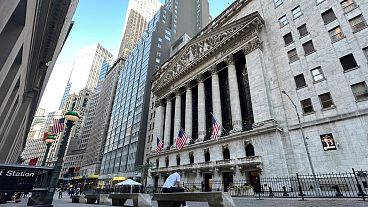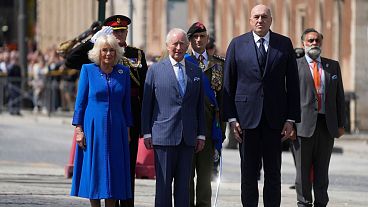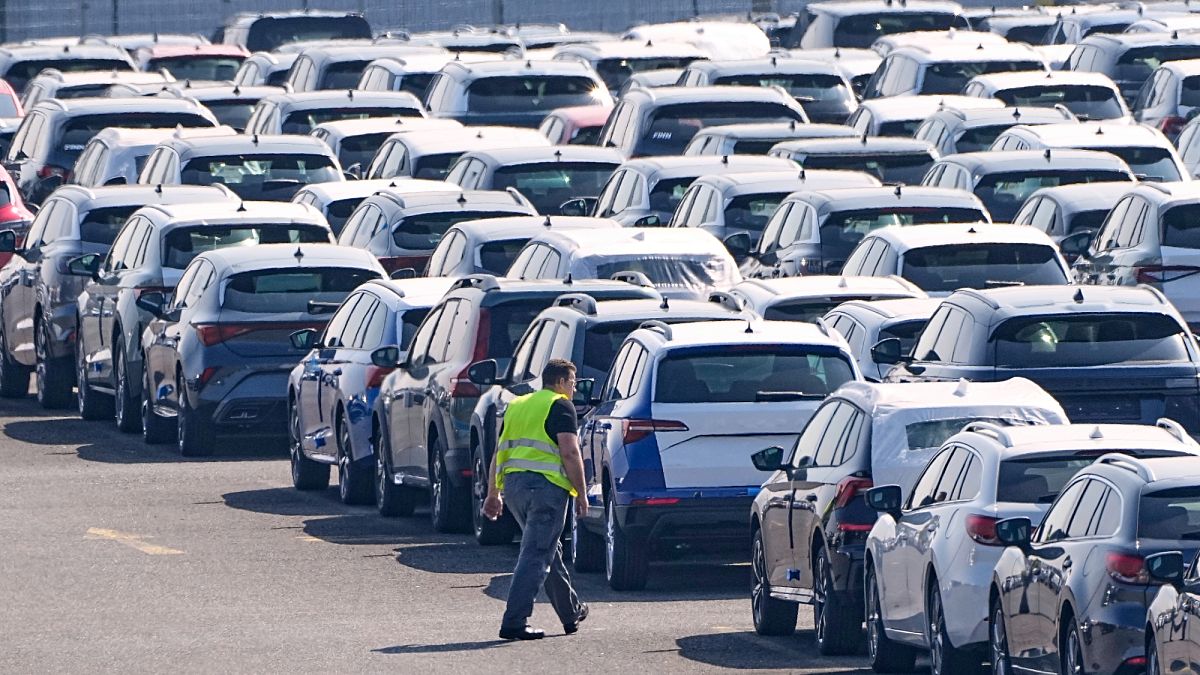Germany is anticipating a trade war as President Donald Trump prepares a raft of punitive tariffs. How will the country's car manufacturers be affected?
US President Donald Trump is expected to announce further tariffs on imports this week, in addition to the 25% tariffs on imported cars and car parts he has already ordered. But while governments and exporters the world over have been preparing for his next move, predicting what it will be or what impact it will have has proven difficult.
Trump has also repeatedly flip-flopped between announcing tariffs and then pausing them. Markets are in a volatile mood — and all the while, the threat of a trade war has raised fears that another US or even global recession could be on the horizon.
The German Association of the Automotive Industry (VDA) has pointed out that US factories rely on supplier networks, especially in Canada and Mexico, meaning that these tariffs will have global consequences. VDA spokesperson Simon Schütz told Euronews that price increases are inevitable — and for US customers in particular.
"In the long run, if the situation escalates, it will cost growth, prosperity, and potentially jobs on both sides of the Atlantic. That’s why finding a solution now is crucial," he said.
German car manufacturers are very active in the US market, employing over 140,000 people at US facilities and producing more than 900,000 cars there each year. Half of them are exported.
"It also needs to be emphasised that even US manufacturers themselves are against these tariffs," Schütz says. "So the US industry in general, if you look at stock market developments, views the current course of the US president very critically."
He adds that tariffs are not the only challenges the car industry in Germany is facing.
"There are also geopolitical shifts that continue to affect us. This makes it all the more important for the incoming German government, which is currently in coalition negotiations, and the EU Commission to do their homework."
Schütz is urging both Germany and the EU to prioritise reducing bureaucracy and focusing on making themselves more competitive and attractive as business locations.
He points out too that energy prices are three to five times higher in Europe than in the US and China, a major problem for international business.
"I think it is important that Europe forms alliances and cooperates with partners who face similar challenges as we do, and that we advocate for global and free trade. History has shown that free trade creates winners and prosperity for all involved. That should now be our primary focus," Schütz insists.
Audi told Euronews in a written statement that the Volkswagen Group to which it belongs is "counting on constructive talks to be held between trading partners in order to ensure economic stability and to avoid a trade conflict".
The car manufacturer underlined the importance of the transatlantic relationship with the US and says it recently invested more than $14 billion (€12.95bn) in the market.













